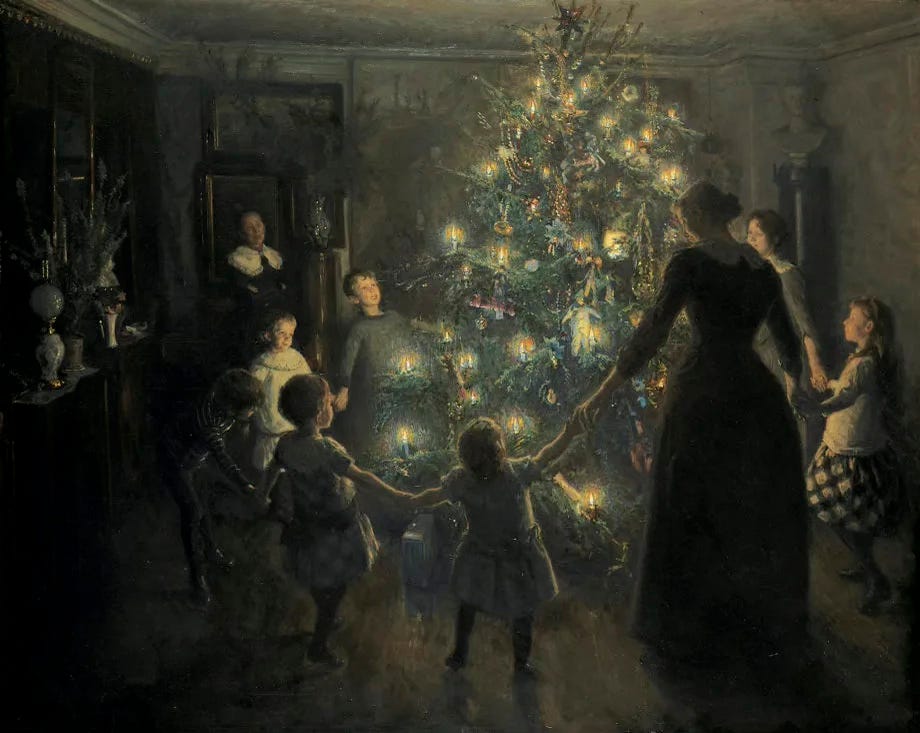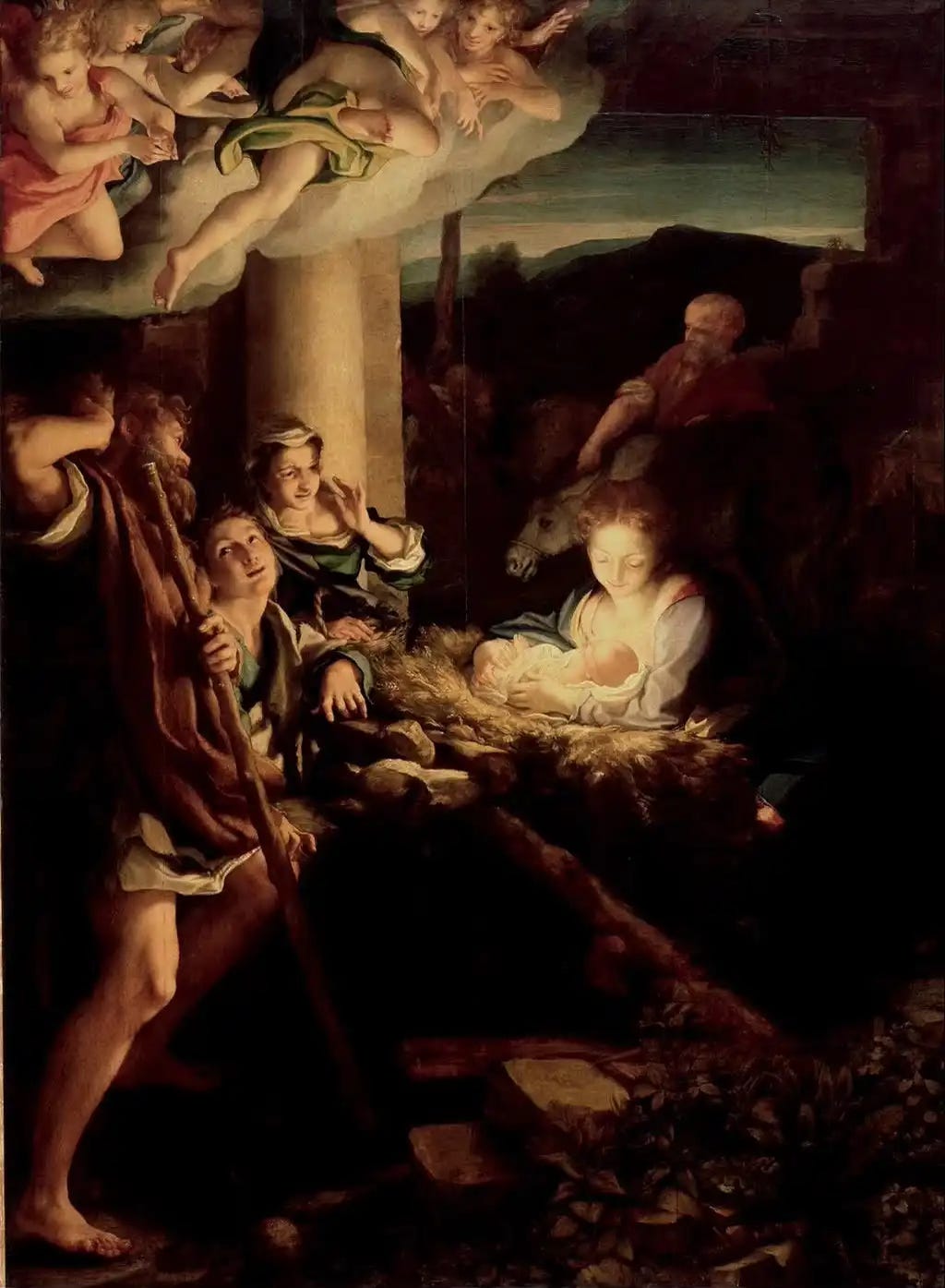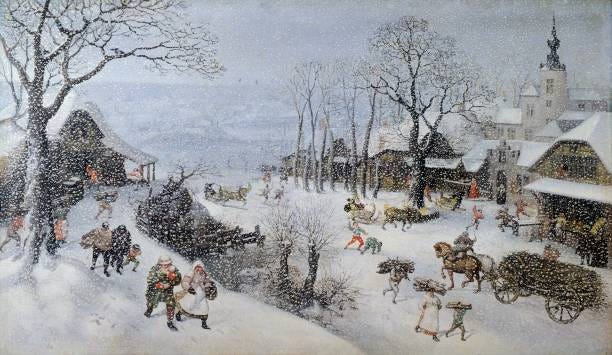Viggo Johansen, Merry Christmas
As we head into the Christmas season, I keep thinking about the ideas of Josef Pieper in his books Leisure: The Basis of Culture and In Tune with the World: A Theory of Festivity. These books explain so many tensions in our culture, from youth sports to boundaries around work and technology, but they especially explain why our overly materialistic culture makes Christmas hard. Pieper shows how work and leisure have become backwards in our culture. He gets to the root of what it means to be human, and how our modern overvaluation of work leads to a culture that doesn’t understand what leisure is for, because it doesn’t really understand how one has to orient themselves to truly have it.
The historical idea of leisure meant time to pursue things that were goods in themselves, like art, conversation, sports, playing, and worship. For the ancient Greeks, the word for leisure was ‘schole’ from which we get school. They viewed learning and knowledge as goods in themselves, and those who had leisure time could pursue that which was most meaningful. For Aristotle contemplation was the highest good, and he was the first to make the distinction of the artes liberales (or the liberal arts) like philosophy and the artes serviles. Pieper notes that together these form “the articulation of a joint, so that the one is hardly intelligible without the other.” Likewise, the concept of ‘worker’ from Aristotle on through to the Renaissance was fundamentally different from ours. Pieper writes:
“The value we set on work and on leisure is very far from being the same as that of the Greek and Roman world, or of the Middle Ages, for that matter – so very different that the men of the past would have been incapable of understanding the modern conception of work, just as we are unable to understand their notion of leisure.”
He explains that the modern notion of ‘work’ and ‘worker’ implies a whole concept of man that includes a vastly different scale of values, and what comes to light when we examine this is not only a changing conception of the nature of man but the meaning of human existence.
We can see this change when we consider intellectual work, which used to mean contemplation, and was distinct from manual work. The concept of intellectual work implies a definite view of man’s intellectual knowledge as achieved by a passive or receptive state that has the world as its object of inquiry and includes wonder and openness. When we open our eyes and see things passively, or through contemplation, we take them in “without calling for any effort or strain on our part to possess them.” But he asks if there is such a thing as having “a purely receptive attitude of mind in which we become aware of immaterial reality and invisible relationships” or pure ‘intellectual contemplation’? The answer was always yes for antiquity, but for the modern philosopher it is no.
This is because the modern view of work has changed. He identifies three things that are present in our modern notion of work. Work, intellectual or otherwise is: 1) always active 2) something that is more valuable the more one suffers for it and 3) is useful in the here and now, i.e. has utility as its end and has a social function.
In contrast, the liberal arts fall by definition outside of ‘work’. They are ‘free’ in that they do not serve any other ends. Those intellectual activities that fall under the umbrella of liberal arts like philosophy, art, plays, music, etc., are liberal only in as much as they do not serve any other ends. The goal was not that it produced anything, but to grasp reality itself.
Antonio da Correggio, The Holy Night and Adoration of the Shepherds
But the problem with the modern notion of work is that we have made work the highest good. Work itself is glorified as a celebration of man. In this context, leisure and celebration take away from work. How many movies have we seen when the working man whose identity is found in his work can barely be present at their child’s birthday party or a family vacation? Even the Christmas classic Scrooge was getting at his mis-guided values of seeing work and production as the highest good, and workers as means to this end instead of ends in themselves.
But where our culture goes awry is in seeing the intellectual arts, the liberal arts, as part of this notion of work as the highest aim. He writes: “Nowadays the whole field of intellectual activity, not excepting the province of philosophical culture, has been overwhelmed by the modern ideal of work and is at the mercy of its totalitarian claims.” Pieper claims this is due to the worker’s struggle to seize power, and we can see the challenges this leads to most clearly by examining the claims underlying the notions of ‘intellectual work’ and ‘intellectual worker’ for “it sums up the whole historical movement once again in a single formula.”
Pieper points to both communism and postmodernism as against the idea of festivity. He writes in In Tune with the World: “In a totalitarian state labor is glorified, and government propaganda romanticizes rises in the production indices as if work itself were a form of celebration.” But the possibility of festivity is destroyed even more by the postmodern view that man’s daily life is nothing but a meaningless bustle, or absurd drudgery.
Lucas van Valkenborch, Landscape in winter
In contrast, leisure is a mental and spiritual attitude, “a condition of the soul, and as such utterly contrary to the ideal of worker” in the three aspects he outlined: work as activity, as toil, as a social function. Leisure is the opposite of these: it is passive, it is pleasant, and it is an attitude of the individual soul that ‘answers’ to the reality of the world. He writes: “It is in these silent, receptive moments that the soul of a man is sometimes visited by an awareness of what holds the world together.” What is so interesting is that he points out we can only truly be in leisure if we are in harmony with ourselves, and the world, and we can affirm that the world is good.
With the knowledge one has found in their leisure time –reading a good book, sharing a meal with friends and family, going to church, spending time in nature - a person comes back to their everyday activities with an awareness of the transcendent, and of what is important. And in fact, Pieper holds in In Tune with the World that celebrations are only meaningful if something transcendent is being celebrated.
These ideas have helped me see so much that we try to inject meaning into celebrations when we are not at peace with ourselves or with the world, and in our consumeristic society, meaning is often substituted with more money. Nowhere is this more clear than Christmas marketing. But I can see now in Pieper’s writings the remedy for this too. Trying to create these conditions in our soul to be in harmony with ourselves, and to see goodness in the world, help us to be reminded of what is truly meaningful, and if we’re lucky, to be visited by ‘an awareness of what holds the world together’ which seems like another way of saying O Come, o come, Emmanuel.





